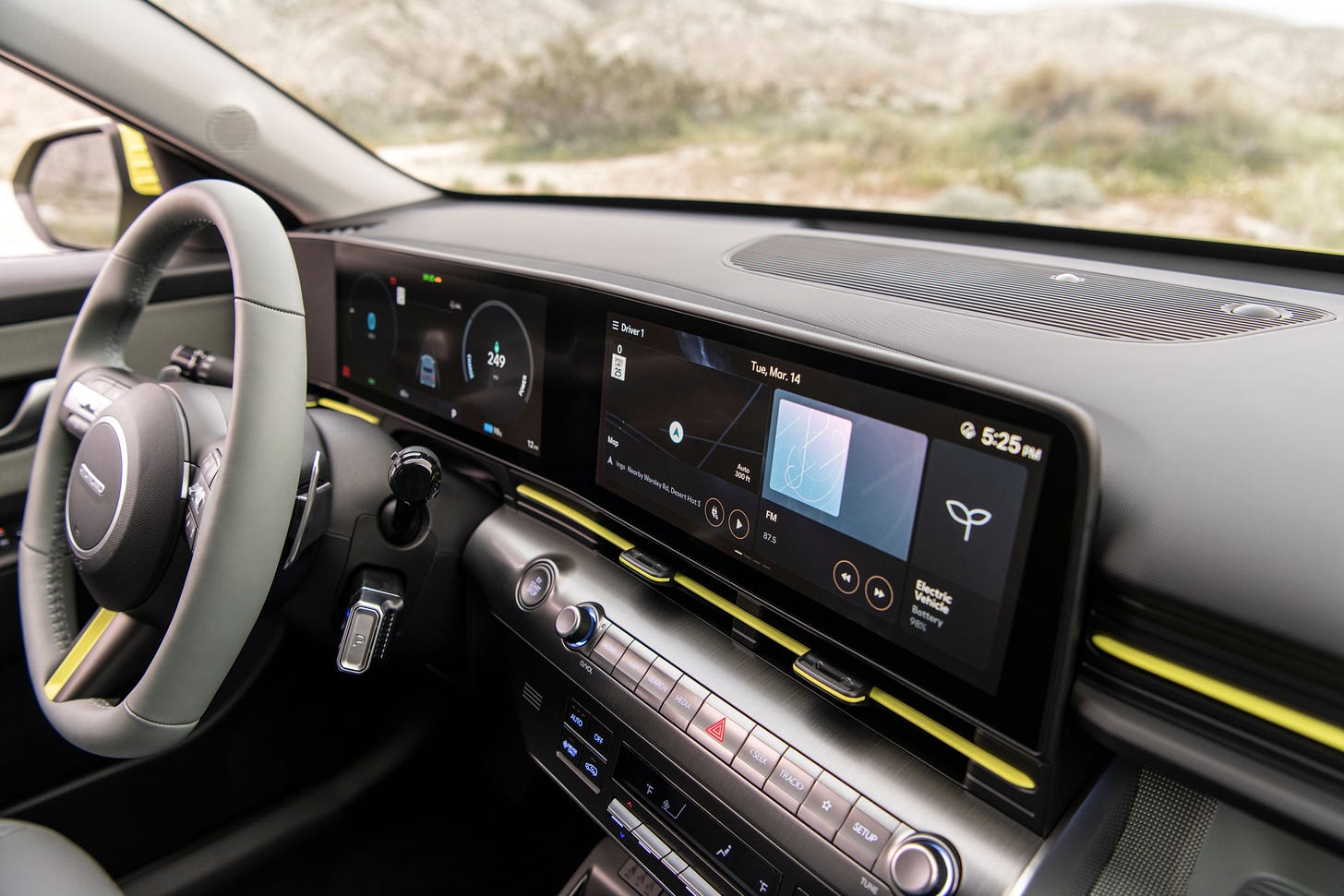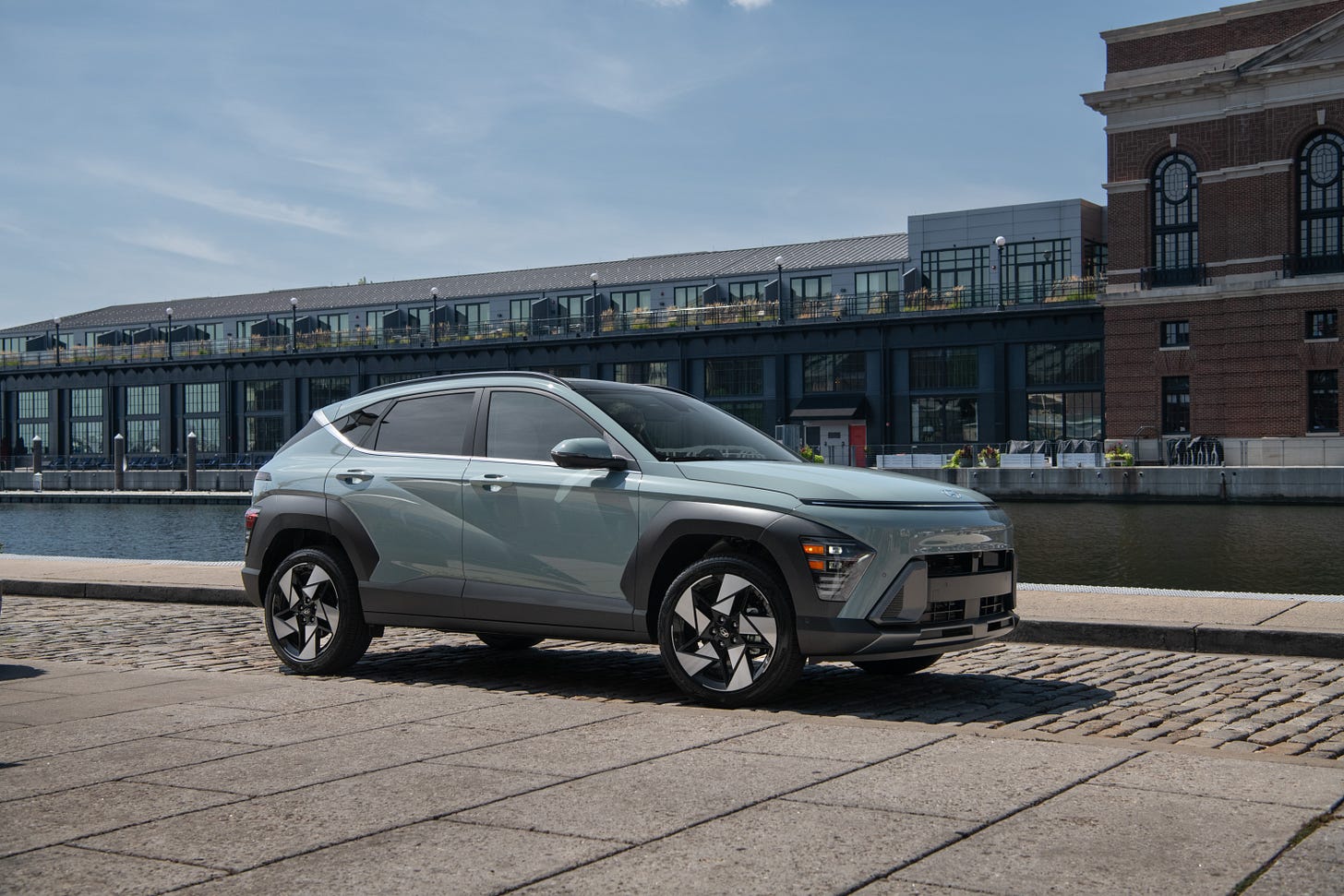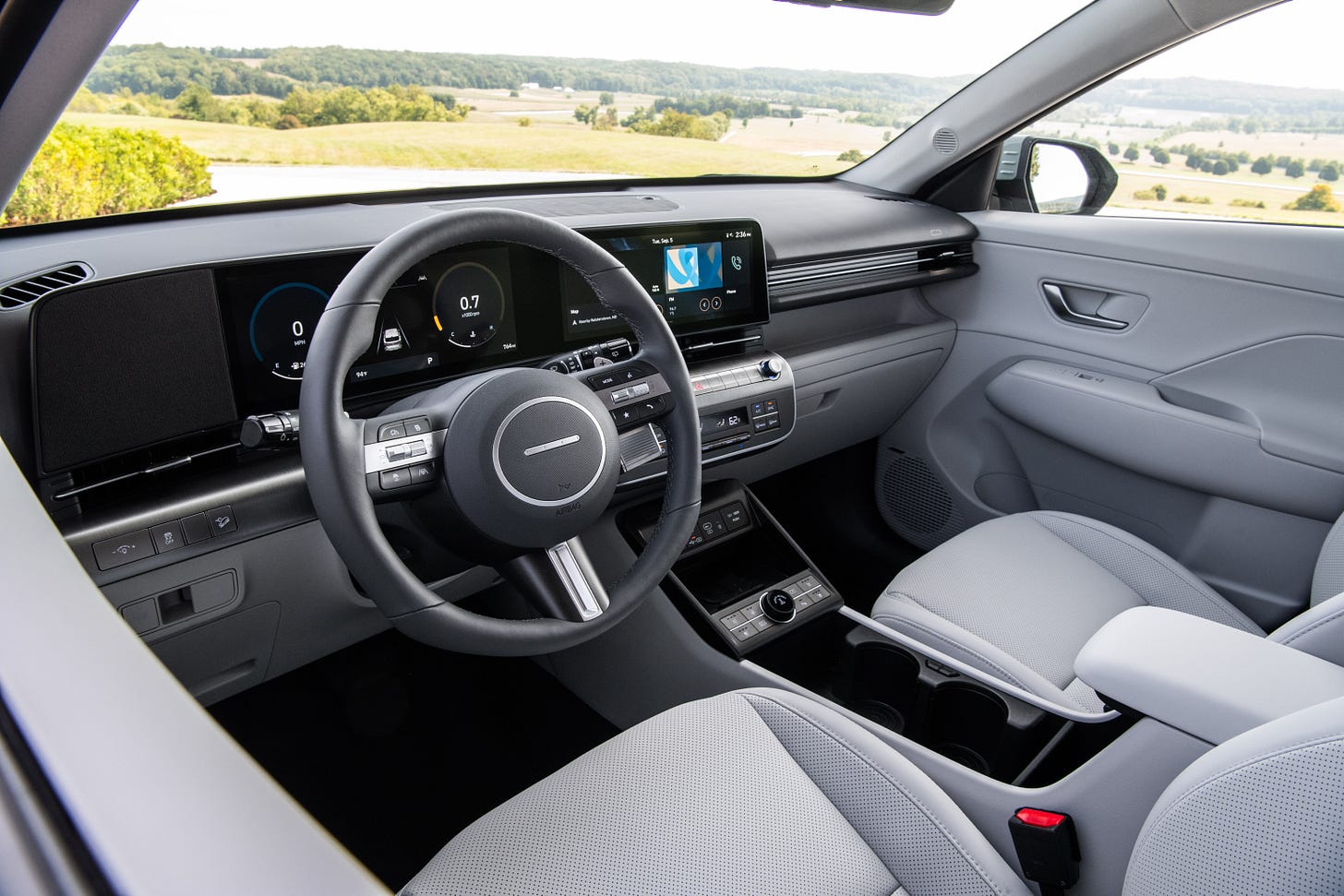2024 Hyundai Kona Review
Affordable innovation in an attractive package
BALTIMORE — Reviewing cars for a living, it's essential for me to remember the potential buyer for any vehicle I test. After all, no car is perfect, and my job is to figure out what's wonderful or wayward in every vehicle I drive, and then to determine whether that matters to the buyer.
A Lamborghini Huracan may have terrible cupholders or fuel economy, but does that matter to someone buying a violently purple $300,000 super sports car? Fuel economy won't matter a whit (and is probably a feature, come to think of it), but the cupholder thing might.
Similarly, for the 2024 Hyundai Kona, my review car this week, my main gripe was with the firmness of the suspension. The steering was sporty and predictable, and the tiny 1.6-liter turbocharged engine makes plenty of power, but the suspension was firm and a touch jarring on the rough roads of downtown Baltimore and the cobblestone streets of Fells Point.
But when considering the market for a $30,000-ish crossover, are buyers going to notice a firm suspension, and if they do, would they care? Luckily for me, I don't have to think too much about it, as any potential concerns about ride harshness will be quickly bounced from memory once a potential Kona buyer sees the enormous screens for the instrument cluster and the infotainment sitting prominently atop the dash.
A lot of buyers are going to fall in love with the Kona the moment they slip inside. I drive a lot of new luxury cars, and almost all of them have huge screens — whenever I give someone a ride who isn't used to those vehicles, they always remark on the screen and declare that their next car will also have huge screens. Well, here are your giant screens, in an affordable subcompact crossover that hits all the right buttons for its target market.
The secret sauce is economies of scale — a business tactic Hyundai has mastered, and it's paying off big time for consumers. They're using a strategy Apple has employed for years: standardizing tech across its vehicle lineup, from the three-row Palisade to the pixelated Ioniq 5 EV (not to mention corporate cousin Kia and its Genesis luxury brand). Because they're making hardware and software in huge quantities, the cost per unit goes down, and fancier tech ends up in cheaper cars. It's like buying toilet paper in bulk; you get more for less.
That means the screens in Kona aren't second-tier economy-priced tech; they're awfully similar to what you'll find in Hyundai's up-market models. You get the sizzle and the steak and Apple CarPlay, too. Wired support is standard, and Hyundai is promising wireless CarPlay support via an over-the-air update next year.
Fancy screens aren't the only place Hyundai buyers benefit from this democratization of tech. The Kona features Hyundai's Highway Drive Assist system, bringing features like automatic lane centering and adaptive cruise control with stop-and-go to a segment that saw power windows as an optional extra a decade ago. These are driver assists superior to those offered in some brands at twice the price.
I'm forever hearing about how carmakers don't offer affordable vehicles anymore. It's hard to find a car under $20,000 because of inflation and additional government regulations around safety, fuel economy, and emissions. But $30,000 is the new $20,000, and this Kona qualifies as affordable. Even better, it's packed to the gills with clever design, tech, and safety.
The interior is worth a special callout, with a pair of USB-C ports at the bottom of the center stack and a clever dual-use bin between the seats, with room for sunglasses, phones, and more — as well a cupholder that spins out when you need it, leaving lots of extra room when you don't. That space continues back underneath the armrest, so rather than having multiple small storage spaces, you just get a ton of room to keep your stuff close at hand. This sort of open floor-plan design is something we've seen in EVs, and it's great to see it coming to regular cars as well.
Most automakers only want to talk about the latest hundred-thousand-dollar EV, packed with increasingly pointless luxury features in a race to find something to differentiate from the competition. Hyundai's Kona serves as a refreshing reminder that innovation and quality can still be found where it matters most: in cars that people can actually buy. Even better, it's a glimpse into a future where "affordable" doesn't mean "stripped-down," and for that, Hyundai deserves applause, firm suspension or not.
Read this next:
2022 Hyundai Tucson Plug-In Hybrid Review
·SAN DIEGO — I wish every car were available as a plug-in hybrid. Our choices remain limited, though, which is a shame because they're perfect for so many people. A plug-in hybrid or PHEV is a stepping stone to fully electric cars and trucks. I've reviewed a number of PHEVs in recent months, including the







